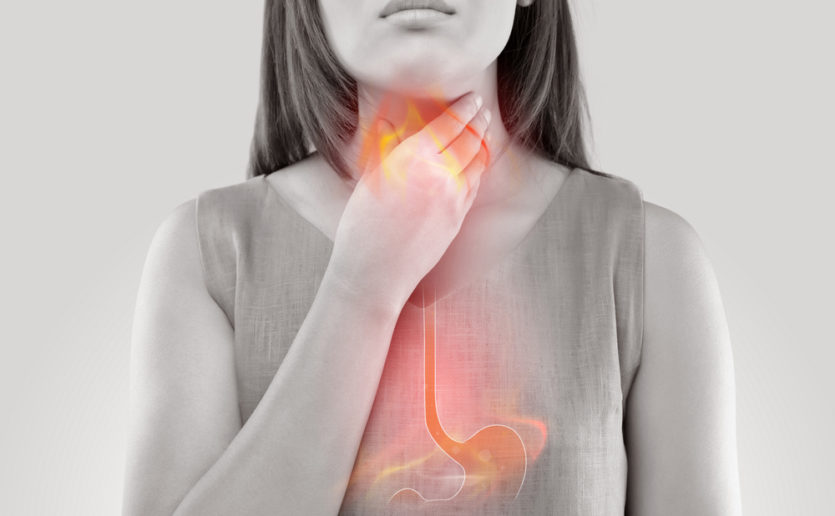Gastro-Esophageal Reflux Disorder (GERD)
GERD or gastro-esophageal reflux disorder is a very common condition affecting up to 10% of Canadians on a daily basis. Although more common in adults over 40 – it can occur at any age, and given the endless commercials for antacids on TV – it’s likely that most people are aware that the condition exists.
Typically symptoms include heartburn and regurgitation of stomach contents but can also include difficulty swallowing, hoarseness, sore throat, sinus issues, ear infections and more. In fact sometimes people don’t even experience heartburn (know as silent GERD) but they experience one or more of the secondary symptoms – making diagnosis that much more difficult to make.
Why do people get GERD?
The pathophysiological reason people can develop GERD is due to a problem with the lower esophageal sphincter or the “hatch” that opens and closes between your esophagus and stomach. When the sphincter loses its patency (its ability to tightly close) stomach contents can shoot up and cause heartburn (pain, irritation and cellular damage to more sensitive esophageal cells) and if left untreated this cellular damage can cause more serious pathology down the road – which is why eliminating GERD early on is important.
“Doc, lets get rid of that stomach acid!”- Typically, and more conventionally, GERD will be treated by prescribing acid-lowering medication also known as PPIs or proton pump inhibitors. Although these work well in certain situations (to heal a peptic ulcer for example) – patients tend to stay on these medications for years and very often experience a wide array of side effects. Think about it for a second, the person taking the medication has chronically lowered stomach acid – so how likely are they to digest foods properly? I’ve seen this happen numerous times in practice. Over time suppressed stomach acid causes decreased absorption of B12, calcium, magnesium, iron. It can cause bone fragility and fracture, decreased gallbladder function, increase your risk for food poisoning and various nasty infections like clostridium difficile.
Ironically, each patient should be analyzed for DECREASED production of stomach acid. Wait what?! Although this seems counter-intuitive at first, adequate stomach acid production is needed for the lower esophageal sphincter to receive its signal to tightly close. In cases where stomach acid production is decreased the sphincter can stay ajar causing the aforementioned symptoms.
GERD can also be caused or triggered by food allergies. Which is why I will test with a specific IgG food allergy panel if necessary. These tests can be very informative and prevent the patient from avoiding foods that they “think” may be exacerbating their symptoms but in reality have no effect.
Finally, once the cause of the problem is found, various botanicals may be prescribed to heal the lining of the stomach. Reinoculating the GI tract with good bacteria is also necessary to regenerate beneficial bacteria in the tract.
With correct diagnosis, the condition is very treatable. This means patients can once more open up their diets and enjoy foods that they’ve been avoiding.
If you have any questions about GERD in general or are looking for help – click here to book an appointment with Dr. Michael Michna, ND.

